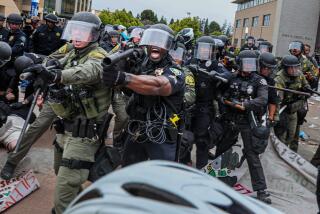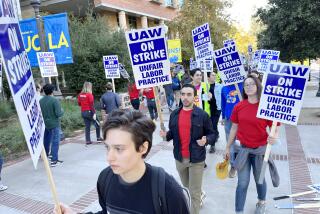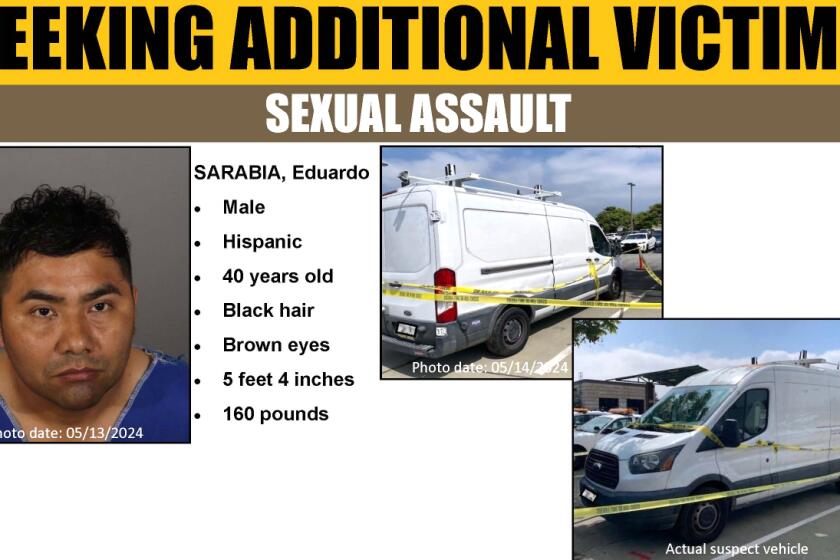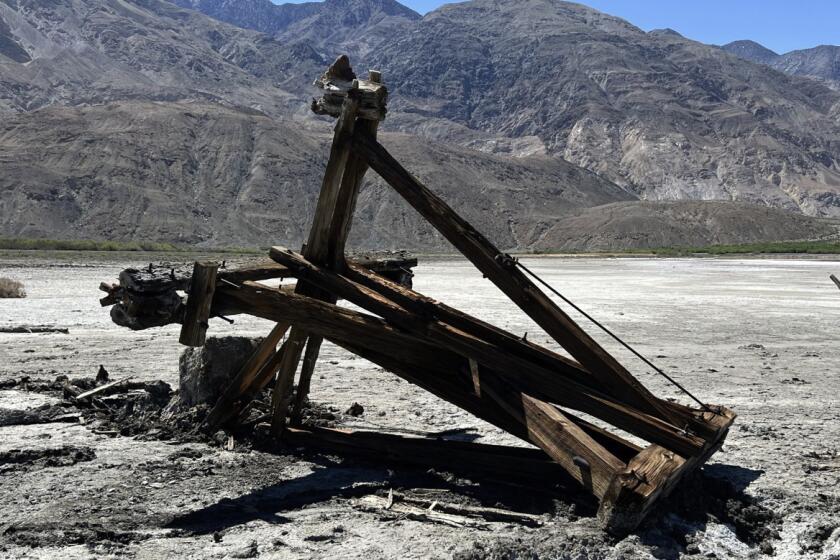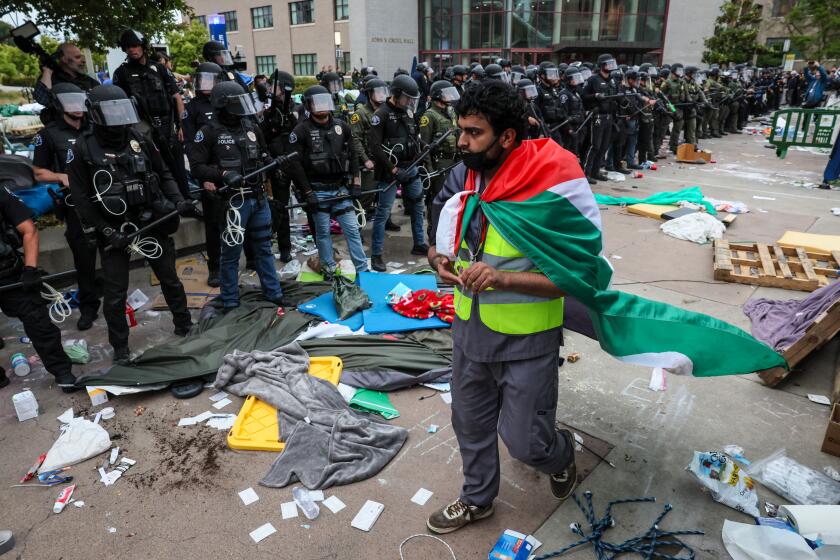Court Rejects Appeal of Rules for Liquor Stores : Regulation: Owners of South-Central markets destroyed in the 1992 riots were challenging Los Angeles’ conditions to allow reopening.
The state Supreme Court rejected a challenge Thursday by Korean American store owners to restrictions by the city of Los Angeles on reopening liquor stores that were burned in the 1992 riots.
The owners said conditions imposed by the city were so burdensome that only six of 175 Korean-owned stores licensed to sell alcoholic beverages have reopened. Their suit argued that the city was trying to regulate liquor sales, which are subject to exclusive state regulation under California law.
But a state appeals court ruled in Los Angeles’ favor in March, saying the purpose of the city’s restrictions was to curb undesirable activity near liquor stores and not to regulate or prohibit liquor sales.
The state Supreme Court denied review of the owners’ appeal Thursday. Only Justices Stanley Mosk and Armand Arabian voted for a hearing, two short of the needed majority on the seven-member court.
Stephen L. Jones, lawyer for the Korean American Legal Advocacy Foundation, blamed hysteria and a neo-Prohibition movement for driving the store owners out of business. He said he was deeply disappointed by the Supreme Court’s action.
After the violence that followed the first Rodney King trial in 1992, the City Council passed a resolution blaming an “inordinate” amount of liquor stores in South-Central Los Angeles for contributing to health and safety problems. The city required liquor stores that had been destroyed or badly damaged--most of them Korean-owned--to obtain new permits before reopening.
The permits contained numerous requirements for lighting, graffiti cleanup, trash removal and in some cases limits on hours of operation. Jones said the most burdensome was a requirement that each store have a security guard.
“We’re dealing with little mom-and-pop minimarkets,” the lawyer said. “To have a full-time, licensed security guard sit around and eat peanuts is prohibitive.”
A guard could do little about the off-site crime problems that were the city’s professed concern, Jones added. “It’s just a condition that effectively denies people the ability to go back into business,” he said.
The store owners’ request for an injunction against the permit requirements was denied by Superior Court Judge Robert O’Brien in June, 1993, and their suit was dismissed two months later by Superior Court Judge Judith Chirlin. The 2nd District Court of Appeal upheld Chirlin’s ruling this March.
The state’s exclusive authority to regulate liquor sales, established by a 1934 state constitutional amendment, is not violated by the city’s restrictions on liquor store operations, said Justice Earl Johnson in the 3-0 ruling.
Instead, the city, exercising its power to regulate land use, was trying to control the “negative conduct which tends to occur on premises immediately surrounding” liquor stores, Johnson said.
He also rejected the store owners’ argument that the city was violating a state law that allowed dealers of alcoholic beverages to maintain their businesses if the only reason for a temporary closure was an “act of God.”
An “act of God” is a natural force, like an earthquake or lightning, and does not include fires caused by other people, Johnson said.
More to Read
Start your day right
Sign up for Essential California for news, features and recommendations from the L.A. Times and beyond in your inbox six days a week.
You may occasionally receive promotional content from the Los Angeles Times.
